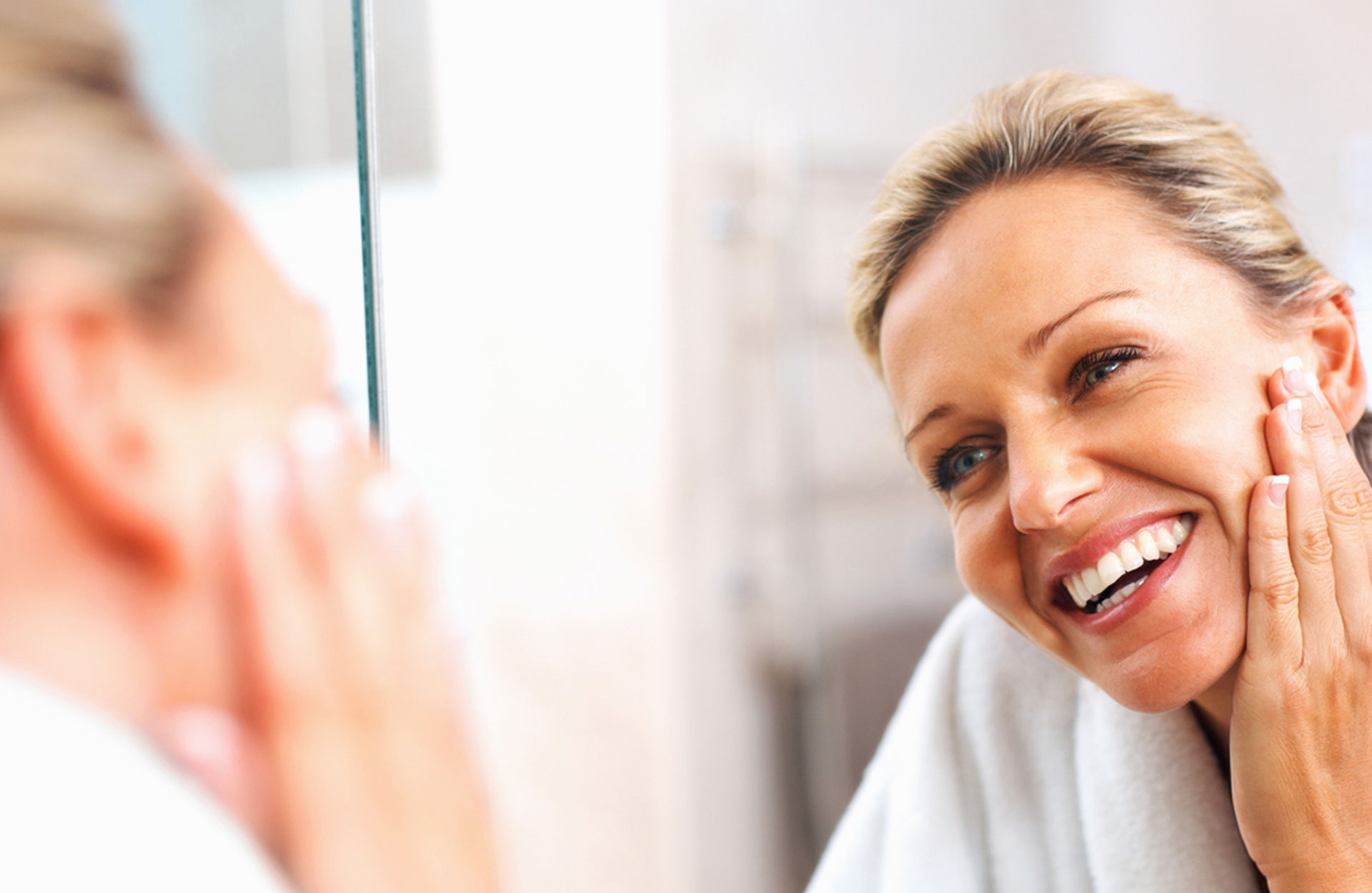The promises of resveratrol for the skin
Resveratrol is a super antioxidant. Endowed with astonishing anti-aging properties, it is now causing a stir in cosmetics and is increasingly being used in our skincare products. Here's why we believe it.
It helps fight against skin aging
You don't know it but you already know resveratrol very well. It is thanks to him that wine (to be consumed in moderation of course) has the reputation of being beneficial for the health and youthfulness of the skin. Discovered in 1939 by a Japanese, this molecule, which is at the heart of the “French paradox”, took several decades to reveal its astonishing properties. Today she is passionate about cosmetic research to fight against skin aging. Especially since using it topically, therefore via a cream, allows much larger doses to be distributed to the skin than if it were absorbed orally. It was the Caudalie brand which was the first to be interested in the research carried out on resveratrol by Professor Joseph
Vercauteren. The year was 1995. While teaching at the Bordeaux Faculty of Pharmacy where he directed work on polyphenols, Professor Vercauteren isolated and then demonstrated the unparalleled antioxidant properties of this molecule present in vine shoots. From there was born the patented Resveratrol, stabilized and enriched with its oligomers (derivatives) to boost its effectiveness. Other laboratories such as those of Dior and Estée Lauder also use resveratrol, but without its derivatives and stabilized differently. And, very recently, a new resveratrol, derived from a plant, Japanese knotweed, appeared at SkinCeuticals and Lancôme. But what exactly is it for? Here is his CV. Impressive.
It forms a real antioxidant shield
Resveratrol protects us, in fact, from oxidation, this process of cell alteration caused in part by external aggressions and which the body is unable to channel. Four out of five wrinkles are due to this phenomenon. “They appear when we no longer produce enough collagen. However, oxidative stress destroys collagen,” recalls Dr. Richard Baxter, plastic surgeon in Seattle and anti-aging expert. Thanks to its strong antioxidant effect, resveratrol protects all skin cells from degradation, acts directly on UV-related damage and is therefore a first-choice anti-wrinkle active ingredient. “Anti-inflammatory, it is also effective against pigmentary disorders by inhibiting an enzyme that causes brown spots,” adds Dr. Baxter.
It extends the life of cells
One of its most important actions is that of boosting sirtuin genes. A discovery made by Dr. David Sinclair, from the genetics department of Harvard Medical School, to whom we also owe the discovery of these famous longevity genes in 2006. “These genes control the speed of aging,” explains he. People who have low sirtuin activity age faster. Today, we know twenty molecules capable of waking them up, including resveratrol which is the most active. » By increasing the activity of these genes, resveratrol extends the lifespan of cells, giving them time to self-repair.
It combats the phenomenon of glycation
Glycation, this phenomenon of “caramelization” of fibers under the effect of sugar which leads to the intensification of wrinkles and an accelerated loss of elasticity and firmness. This is the latest repair capacity of resveratrol discovered by Professor Vercauteren for Caudalie.
It boosts the skin's natural defenses
“Recent studies have just shown that the direct antioxidant action of resveratrol is coupled with stimulation of the synthesis of endogenous enzymatic antioxidants,” reveals Julien Demaude, expert at L’Oréal Recherche Avancée. In other words, resveratrol boosts the natural production of antioxidant molecules produced by the skin. Enough to be prepared to face the many daily attacks.
It stimulates collagen production
To be precise, two very good quality collagens. Type I collagen, present in the deep dermis, which maintains the skin. But also type III collagen, present between cells, which ensures the density and “bouncy” of our features.
Can you swallow resveratrol?
Of course, first of all by drinking red wine. Not the best, unfortunately! “Resveratrol is a molecule produced by the vine to defend itself against attacks. When the weather is bad, it produces a lot of resveratrol, but the wine is then less good. When the climate is favorable, the wine is of quality but low in resveratrol,” explains American plastic surgeon Richard Baxter. Those who do not want to drink alcohol will find resveratrol in no less than 70 plant species, including walnuts, blueberries, blackberries, pomegranate, cranberries, cocoa, peanuts, rhubarb.
A promise for health?
Today, medicine is very interested in resveratrol and its derivatives, particularly to fight cancer. “They showed that they could inhibit the division of tumor cells,” explains Professor Vercauteren, a specialist in polyphenols, who, since 2002, has been studying their properties in treatments against cancer and neurodegenerative diseases. Much research is also underway to evaluate their effects on Alzheimer's type diseases but also in cases of premature aging of the eye such as AMD or even obesity and type 2 diabetes.

